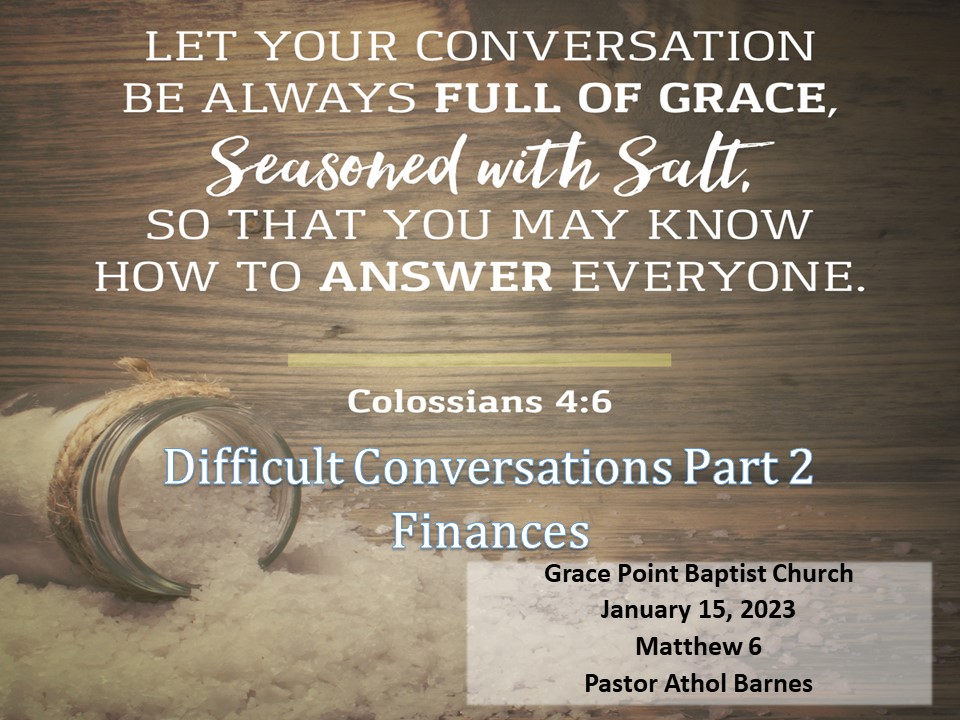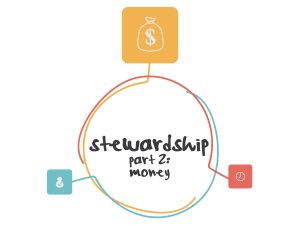
Fifteen percent of everything Jesus said in the Gospels relates to finances. There is eternal significance regarding finances.
Everything we own will end up in a landfill (Matthew 6:19). This might sound depressing, but the truth is that everything we own will be lost.
Yet we fight over things and families split apart over inheritances. We spend hours fighting and wrestling to earn more money to buy things that will be thrown in a dumpster one day.
Jesus said that there is a better way to live (Matthew 6:20).
So, what are treasures in heaven? Jesus instructed the rich young man in Matthew 19 on how to store up riches in heaven.
The Bible says that we will receive rewards in heaven as a result of how we live today. What you do with your time, your money, and your relationships are all potential deposits in an eternal treasure house.
“You can’t take it with you, but you can send it on ahead” Randy Alcorn.
Having money and being wealthy is not a bad thing. However, the way we view money and how we use the money we have today is the way we store up treasures in heaven. It is a matter of ownership, who owns our earthly treasures?
From Psalm 24:1 we know that God owns everything, and we get the opportunity to be stewards of what God always owns. We are investment managers of God’s resources.
Are you devoted to the Lord or are you devoted to money and possessions?
We live in a materialistic society where there is a constant striving to accumulate money and things, that will eventually rot away.
It really is all about having an eternal perspective. But many Christians live as if this is all there is. Many professing Christians love the concept of eternal life and heaven, but it is disconnected from their daily reality (Philippians 3:20). Our home is a place we have never been.
AW Tozer wrote, “As base a thing as money often is, yet it can be transmuted into everlasting treasure. It can be converted into food for the hungry and clothing for the poor. Any temporal possession can be turned into everlasting wealth. Whatever is given to Christ is immediately touched with immortality.”
Many of you are struggling financially, and simply making ends meet is a challenge. Inflation, natural gas prices, medical debt, and other life expenses are the present realities of most people.
Jesus is not speaking to rich people in Matthew 6, he was primarily speaking to his disciples. These were men who had nothing, they had left their livelihoods and followed Jesus when he called them.
Jesus told them not to worry in Matthew 6:31-32. It was not an encouragement or a suggestion, it was a command! Our heavenly father knows what we need. Do we believe this?
The kingdom of God is counterculture, it is counterintuitive. The world says that in order to be secure and have peace, you must amass wealth, storing up for a rainy day.
I am not saying that saving and being frugal is a bad thing, but security in the kingdom of heaven is found when we are generous.
It is a Biblical and accepted principle to worship God by giving to Him. Giving 10% is a good principle, a starting point as a spiritual discipline. We are no longer under the Mosaic law, but Jesus didn’t lower the bar when he preached, he raised the bar. Every New Testament teaching on giving always goes beyond a 10% tithe, it never falls short of it.
So, the question is not whether or not I am giving 10% to the Lord, the question is, what am I doing with the other 90% that the Lord has entrusted to me? After all, it all belongs to Him.
Am I using the 90% for the Lord’s glory or am I wasting it on pleasure, and on things that do not please the Lord.
I encourage you to give 10% of your income to the work of the ministry of your local church, and then as the Lord leads you, give over and above to missionaries and ministries that advance the Gospel.
This is not giving to God to become rich in this present age. The false teaching that says if you give $1000 to God, he will bless you with a tenfold return or more. That is not the Gospel.
If the Gospel seems to be more true in America than it does in rural China or central Africa, then it is not the good news of Jesus Christ. God is not a vending machine who responds to us as if He is there to do our bidding.
Now if we follow God’s principles and honor him with our money, it is usually results in prosperity, but that is the blessing of the Lord for His glory and not a response to our manipulation.
God wants us to be generous with the blessings that He gives us. Generosity comes from knowing that everything we have comes from the Lord and that our God never runs out of resources.
God blesses us so that we can be a blessing (2 Corinthians 9:10-11).
Let us become a people who are generous, resulting in…thanksgiving to God.
You may ask, with all this talk of generosity and giving, don’t we live in a season of financial uncertainty? I am sure you have heard the reports of recession. However, whenever there is fear, there is also manipulation. God always calls His church to walk in the opposite spirit (2 Timothy 1:7).
Do you want to recession-proof your finances? Invest in the Kingdom of Heaven (Matthew 6:33).
If you were to die today, how much have you invested in eternity?
Is God calling you to be a more generous giver?
Is God calling you to commit all your finances and resources into His care?




 There are 2350 verses on finances in the Bible, and 15% of all the recorded words of Jesus were on money. Finances are obviously an important topic in the Word of God, and stewarding our finances well is vital to our Christian walk.
There are 2350 verses on finances in the Bible, and 15% of all the recorded words of Jesus were on money. Finances are obviously an important topic in the Word of God, and stewarding our finances well is vital to our Christian walk.